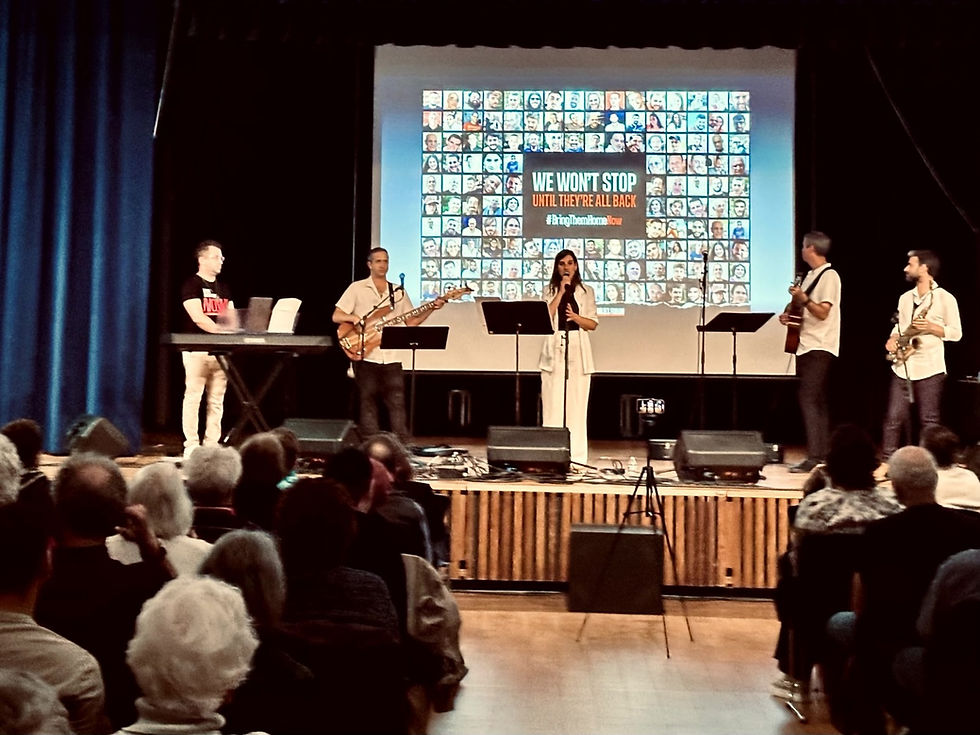You have to see it to believe it: a neighborhood bike cooperative for Jews, Arabs and Bedouins
- Carmi Tint
- Jan 20, 2023
- 3 min read
If you were to wander by the Gimmel Neighborhood Park in the southern city of Beersheva on a regular Monday afternoon, you might not believe what you see. You might not even understand what you hear as Russian, Hebrew and Arabic phrases are tossed around interchangeably amongst the unlikely group of individuals gathered together. But your eyes and ears don’t deceive you – every Monday afternoon like clock-work, Eitan Goldstein, a Dror Israel educator and community organizer in Beersheva, opens up what has turned into a thriving neighborhood bike cooperative and community center in an unlikely spot.

The Gimmel Neighborhood is one of Beersheva’s oldest and most underserved neighborhoods, with a mixed population of Jews of Moroccan, Ethiopian, Iraqi, and Soviet origins, as well as Arabs of Bedouin and Palestinian backgrounds. The Gimmel Park, situated in the middle of the neighborhood, had been a source of public safety concerns for decades. Over the course of the last year, the neighborhood bike cooperative has helped turn this park into a safer and more inviting gathering spot for all neighborhood residents.
While the physical supplies might not be so special (a folding table, a shopping cart full of tools and a few cartons of replacement bike parts), the interactions between residents that occur while using the supplies are anything but ordinary. Any resident, regardless of their age, gender, religion or race, is welcome to take part in the community project in which they can learn how to use the tools and fix their own bike, scooter or even wheelchair.

Goldstein brings his experience from Dror Israel’s bike project in the mixed Arab and Jewish city of Akko to his initiative in the streets of Beersheva. He explains that while the bike cooperative exists in a public space with no walls or physical boundaries, there is a clear set of “social rules” that helps to define and maintain the space. Physical or verbal violence is not tolerated. There is no smoking near the activities. If you borrow a tool, you must return it. You may speak whatever language is most comfortable for you. At all times there is a Dror Israel educator present to help guide or solve any sort of social conflicts that may arise.

In a neighborhood where differences between residents are is often a source of fear, the bike cooperative allows a different sort of encounter between the neighborhood’s residents. All are welcome and the weekly gatherings reflect the mixed nature of the neighborhood: senior citizens from the Former Soviet Union, native-born Israelis, Eritrean young adults and Arabic speaking Bedouin teenagers. Parents bring their children to use tools, senior citizens congregate to chat and fill up air in their wheelchair tires and naturally, problems unrelated to bikes in the neighborhood are discussed together in the facilitated and relaxed environment. The bike cooperative has taken on the role of an outdoor community center where residents know that it’s possible to congregate, and come ready and willing to meet and to communicate in constructive ways.

Dror Israel’s bike cooperative has laid groundwork for further community building projects. During Passover last year, a group of neighborhood teenagers participated in a leadership training course in which they honed their leadership and mechanical skills to help lead the bike cooperative. Over the summer break, a group of parents in the neighborhood organized a trip for neighborhood children to a local road safety center to learn and practice safe bicycling on neighborhood roads and sidewalks. In just a few weeks, a group of local residents will depart on a day-long family bike trip that neighborhood leaders have planned.
While its impact is wide-spread, the mechanics of the bike cooperative are quite simple. Goldstein explains that each individual, after twenty minutes with tools and guidance from the Dror Israel educator, has something else they can give to someone else, whether it be a piece of advice or a hand to lend to help tighten a bike chain. Every person, no matter who they are, has the opportunity to simultaneously give and receive help. A simple five-minute interaction between residents, who may not even speak the same language, turns an anonymous resident into a fellow neighbor, an individual with a name, a story and potentially a similar need. Slowly but surely, one Monday afternoon at a time, the bike cooperative is helping to turn the Gimmel neighborhood into a community.



Comments